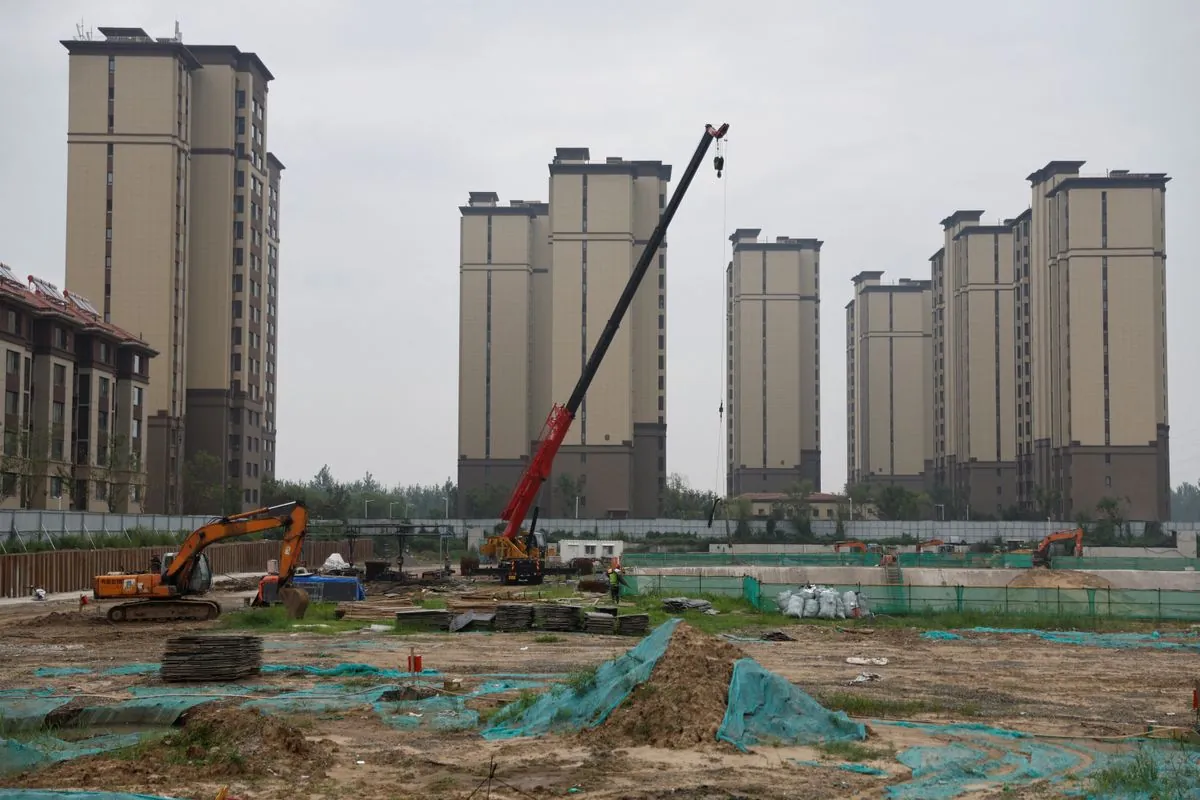China's Cautious Approach to Property Crisis Raises Economic Concerns
China's muted response to its property sector crisis is impacting economic growth and foreign investment. Experts argue for more decisive action, while Beijing remains cautious, potentially risking long-term economic stagnation.

China's restrained approach to addressing its ongoing property crisis has left economists and investors perplexed. The world's second-largest economy, known for its rapid growth and economic prowess, is facing a significant challenge that threatens to undermine its financial stability and growth prospects.
Historically, major housing crises have been resolved through decisive governmental action, typically involving substantial monetary and fiscal stimulus. However, Beijing appears to be taking a different path, opting for a more measured response that some experts view as insufficient given the scale of the problem.
The People's Bank of China (PBOC), established in 1948, has recently refrained from reducing benchmark interest rates. Instead, it has chosen to inject short-term liquidity into the banking system, a move that analysts at the Institute of International Finance describe as "slow, timid, and sometimes very vague."
This cautious strategy is having noticeable effects on China's economic performance. Growth projections for 2024 are falling short of the government's 5.0% target, a stark contrast to the country's historical average growth rate of 9.5% annually from 1978 to 2018. Deflationary pressures are intensifying, investment is declining, and credit growth has reached record lows.
The property sector, which at its peak in 2021 accounted for a quarter of China's GDP, is at the heart of this crisis. Since then, housing investment has decreased by 30%, home sales have halved, and housing starts have plummeted by two-thirds. The scale of the problem is immense, with analysts estimating that up to 7 trillion yuan ($1 trillion) may be needed to restore housing inventory to healthier levels.

Beijing's hesitancy to implement more aggressive measures may stem from several factors. There are concerns that flooding the system with liquidity might not address the root cause of the crisis, which is as much about oversupply as it is about debt-fueled leverage. Additionally, there are fears that deep rate cuts could weaken the yuan excessively, potentially triggering capital flight and damaging banks' interest margins.
The consequences of this policy paralysis are becoming increasingly apparent. By not following global peers in aggressively cutting rates, the PBOC has inadvertently contributed to strengthening the yuan, which could further hinder economic recovery. This situation draws parallels to Japan's experience following its housing bubble burst in 1990, a comparison that Beijing seems keen to avoid.
"Beijing's policy response has been slow, timid, and sometimes very vague."
The impact on foreign investment has been significant. Chinese equity funds have seen inflows in only two of the last 13 months, and foreign direct investment flows have turned negative. The Shanghai Stock Exchange, established in 1990, has seen its blue chip index decline by 15% since May and nearly halve since February 2021.
While some investors remain optimistic about China's long-term prospects, citing its position as the world's largest consumer of many key commodities and its innovative capacity, others are more cautious. The current economic situation reflects the complex challenges facing China as it navigates its property crisis and broader economic transition.
As China continues to grapple with these issues, the global economic community watches closely. The outcome of Beijing's approach to this crisis could have far-reaching implications, not only for China but for the global economy as a whole. The coming months will be crucial in determining whether China's cautious strategy will yield the desired results or if a more aggressive approach becomes necessary to avoid prolonged economic stagnation.


































